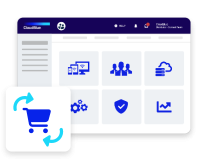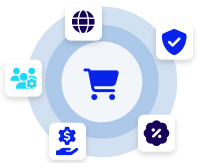Time to Market (TTM), also known as T2M, refers to the amount of time it takes for a product or service to be developed, manufactured, and made available for sale or use in the market. In the context of the SaaS industry, TTM is particularly important as it directly impacts a company’s ability to deliver software solutions and stay competitive in a rapidly evolving market.
For SaaS companies, TTM is a critical metric that measures the efficiency and speed at which they can bring new products, features, or updates to their customers. The SaaS industry is known for its dynamic nature, with customer needs, technological advancements, and market trends constantly changing. To effectively capitalize on these opportunities and meet customer demands, SaaS companies must minimize their TTM.
A shorter TTM in the SaaS industry has several advantages. First, it allows companies to respond quickly to market needs and emerging trends, gaining a competitive edge over slower competitors. By releasing new features or products faster, SaaS companies can attract new customers, retain existing ones, and expand their market share.
Additionally, a shorter TTM enables SaaS companies to iterate on their products and incorporate customer feedback more rapidly. This iterative process helps improve the software’s functionality, user experience, and overall quality, leading to higher customer satisfaction and loyalty. By releasing updates and improvements quickly, SaaS companies can stay ahead of customer expectations and adapt to evolving market demands.
To achieve a shorter TTM in the SaaS industry, companies often adopt agile development methodologies and leverage modern software engineering practices. Agile methodologies, such as Scrum or Kanban, promote iterative development, collaboration, and quick feedback cycles. These approaches facilitate faster decision-making, reduce development bottlenecks, and allow for more efficient resource allocation.
Furthermore, SaaS companies may utilize cloud infrastructure and DevOps practices to accelerate the development and deployment processes. Cloud platforms provide scalable resources and services that can speed up development, testing, and hosting. DevOps practices, which emphasize automation, collaboration, and continuous integration and deployment, enable faster and more reliable software releases.













